2007


There may be no internat in Köktöbel, but there is one in Feodosia, just up the coast. Feodosia is a pleasant enough city with a very long history. It was founded by the greeks ("Theodosia")1 and then destroyed by the Huns. It became a Genoese port ("Caffa"), and a large fort was built.
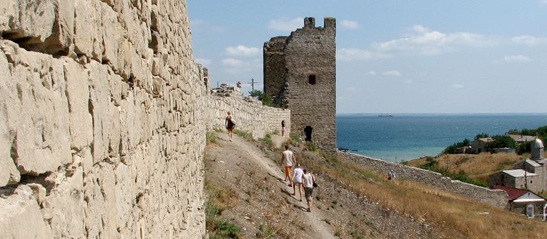
It is thought that the Black death entered Europe here2. It was seized by the Turks, renamed Kefe, and became one of the most important Turkish ports on the Black Sea. It was also the site of a huge slave market; Roxelana3 (right), the young Ukrainian girl who would later become the wife of Süleyman the Magnificent, was sold into captivity here.
Unfortunately, our purpose was not to develop a finer appreciation of Ukrainian history, but to work. We visited the local internat4, which we learned was a center for children with gastrointestinal diseases. They would spend years here, medically supervised, eating special diets, and attending school. The more local students would go home for weekends. Very few of the children were actual orphans, but, since we had agreed to come, we carried out our program.

Children line up to be weighed in Feodosia
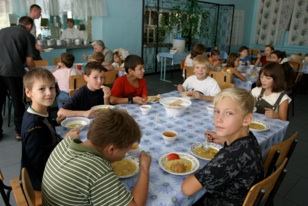

At Feodosia, The assistant director (right, with Peggy) had done her homework, and we went on a shopping spree. We visited the bookstore, computer store, appliance store (Foxtrot, and brand we would soon get to know well) and hardware store, and bargained hard at each and every one. Although this internat does not really meet our criteria (we normally work with orphans), it was nice to visit them and be able to help them out. Although we won't be back, we enjoyed meeting the hardworking staff and helping out some sick children.
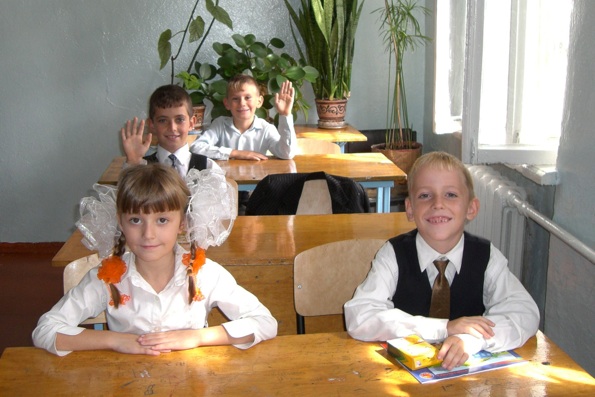
Main UKRAINE Page
Main ROUTE Page
___________
-
1.Ukrainian does not have the "th" sound in its language, and thus not letter for it. Foreign words (particularly from the Greek) have traditionally had the "th" changed to either an "f" or a "t" sound in their Ukrainian versions. Recently, the "f" transliteration seems to be predominating.
-
2.It is believed that the devastating pandemic the Black Death entered Europe for the first time via Caffa in 1347, through the movements of the Golden Horde. After a protracted siege during which the Mongol army under Janibeg was reportedly withering from the disease, they catapulted the infected corpses over the city walls, infecting the inhabitants. Fleeing inhabitants may have carried the disease back to Italy, causing its spread across Europe. However, the plague appears to have spread in a stepwise fashion, taking over a year to reach Europe from Crimea. Also, there were a number of Crimean ports under Mongol control, so it is unlikely that Caffa was the only source of plague-infested ships heading to Europe. In addition, there were overland caravan routes from the East that would have been carrying the disease into Europe as well.
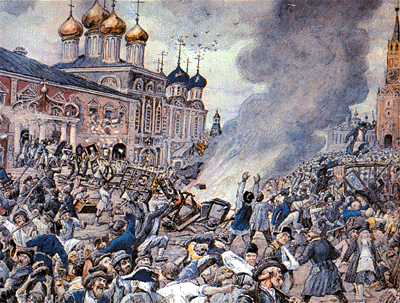
-
3.Roxelana's influence over the Sultan soon became legendary; she was to bear Süleyman five children and, in an astonishing break with tradition, eventually was freed and became his legal wife. This strengthened her position in the palace and eventually led to one of her sons, Selim inheriting the empire. Roxelana also may have acted as Süleyman's advisor on other matters of state, and seems to have had an influence upon foreign affairs and international politics. Some historians also believe that she may have intervened with her husband to control Crimean Tatar slave-raiding in her native Ukraine.
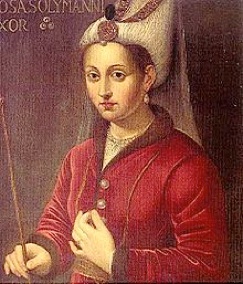
The market, interestingly, was located in what is now a green, tree-filled park directly across the street from our hotel. -
4.An internat is, by definition, simply a boarding school. Most of the internaty in Ukraine are government run, and are for children who are wards of the state. Some are true orphans (no living parents); others are "social" or "legal" orphans, meaning their parents’ rights have been terminated for some reason. Yet others come from very poor families who have given them to the state because of an inability to care for them.
There are also specialty internaty. Some are for special needs kids, those with physical or mental handicaps. These children often have parents who simply can't meet their needs in a home setting; others are abandoned by their parents when the severity of their impairment becomes apparent. There are internaty for troubled youth, the sort who would be placed in structured and limited-access "juvenile facilities" in the States. And finally there are the medical internaty, for children with medical conditions who need special therapy or medical care and an education. -
5.This being Crimea, very few of the staff spoke good Ukrainian, a not many even managed surzhyk, the Russian-Ukrainian creole that is common throughout russified areas of Ukraine. Luckily for us, Maryna was there to do translation. My years of visiting Ukraine came in handy here as well, as I could understand quite a bit of Russian at this point, and the staff would insist on speaking to me when Maryna wasn't around.
Downtown of old Feodosia
Feodosia:



